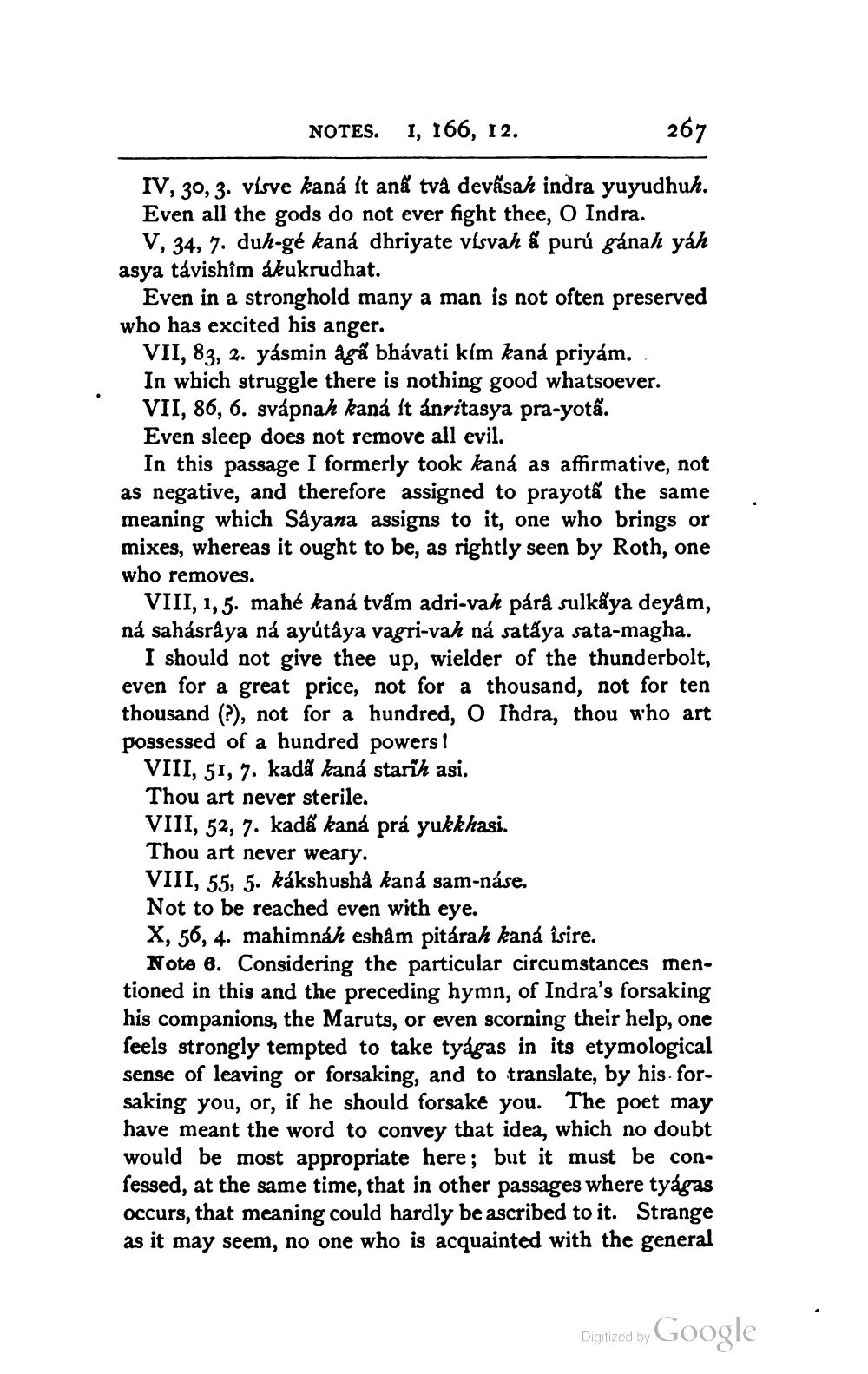________________
NOTES. I, 166, 12.
267
IV, 30, 3. visve kaná It aná två devāsah indra yuyudhuh. Even all the gods do not ever fight thee, O Indra.
V, 34, 7. duh-gé kana dhriyate visvah å purú gánah yah asya távishîm ákukrudhat.
Even in a stronghold many a man is not often preserved who has excited his anger.
VII, 83, 2. yasmin agã bhávati klm kaná priyám. In which struggle there is nothing good whatsoever. VII, 86, 6. svipnah kana ít ảnritasya pa-yota. Even sleep does not remove all evil.
In this passage I formerly took kaná as affirmative, not as negative, and therefore assigned to prayotã the same meaning which Sàyana assigns to it, one who brings or mixes, whereas it ought to be, as rightly seen by Roth, one who removes.
VIII, 1, 5. mahé kaná tvám adri-vah párà sulkåya deyam, na sahásråya ná ayútâya vagri-vah ná sataya sata-magha.
I should not give thee up, wielder of the thunderbolt, even for a great price, not for a thousand, not for ten thousand (?), not for a hundred, O Indra, thou who art possessed of a hundred powers! VIII, 51, 7. kadã kaná starih asi. Thou art never sterile. VIII, 52, 7. kadã kaná pra yukkhasi. Thou art never weary. VIII, 55, 5. kákshushå kaná sam-náse. Not to be reached even with eye. X, 56, 4. mahimnáh eshâm pitárah kaná isire.
Note 8. Considering the particular circumstances mentioned in this and the preceding hymn, of Indra's forsaking his companions, the Maruts, or even scorning their help, one feels strongly tempted to take tyágas in its etymological sense of leaving or forsaking, and to translate, by his. forsaking you, or, if he should forsake you. The poet may have meant the word to convey that idea, which no doubt would be most appropriate here; but it must be confessed, at the same time, that in other passages where tyágas occurs, that meaning could hardly be ascribed to it. Strange as it may seem, no one who is acquainted with the general
Digitized by
Digitized by Google




